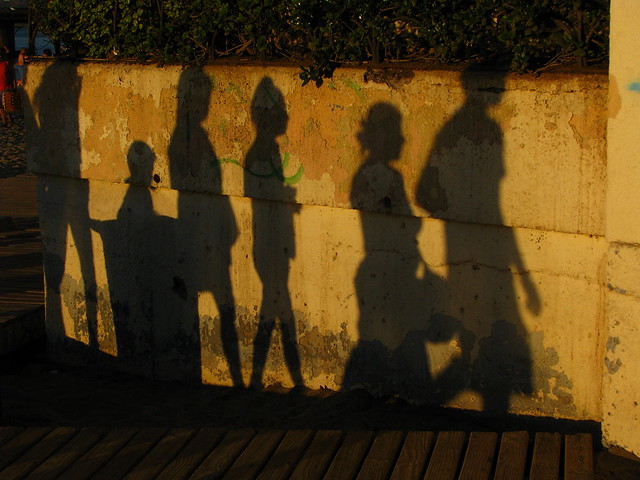-
COVID-19 Shines Spotlight on Race and Gender Inequities in Healthcare
›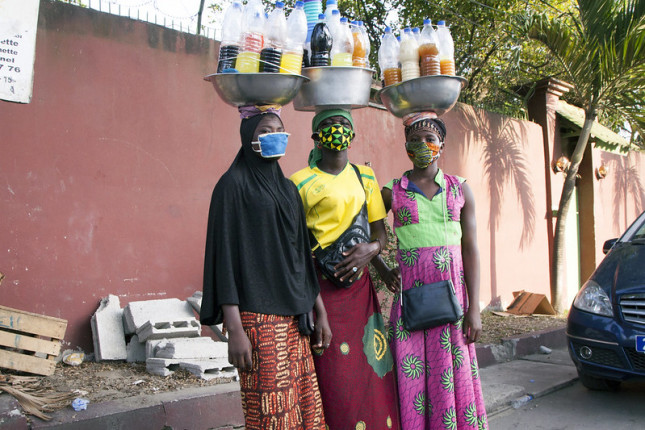
“While COVID-19 has wreaked havoc the world over, history has proven, and recent data agrees that the hardest hit will be the world’s women and girls and populations already impacted by racism and discrimination,” said Sarah Barnes, Project Director of the Maternal Health Initiative and Women and Gender Advisor at the Wilson Center, at a recent event on the impact of COVID-19 on race and gender inequities. Coronavirus has hurt women and girls in many ways. Among them, women have been pushed back into the home. And healthcare workers and caregivers who are mostly women are jeopardizing their own health, caring for others.
-
First Ever State of the World’s Nursing Report: Unlocking the Gender Dimensions
›
“The year is 2020 and it’s a year none of us will forget due to the Covid-19 pandemic,” said Sarah Barnes, Women and Gender Advisor and Project Director of the Maternal Health Initiative at the Wilson Center at a recent webcasted Wilson Center event. “The year 2020, as designated by the World Health Organization, is also the Year of the Nurse and the Midwife and was meant to be a year of celebration and much due recognition of these two incredible professions.” This month, the first ever State of the World’s Nursing report was published by the World Health Organization (WHO), International Council of Nurses, and Nursing Now.
-
Gender and the “War” on Covid-19
›
The rhetoric of war is all around us during the Covid-19 pandemic, from the World Health Organization to historical takes. More critical assessments note that this war, like others, will hurt the most vulnerable. In a recent essay, feminist political scientist Cynthia Enloe takes issue with this rhetoric, pointing to the historic ways in which wars have led to “racist, homophobic, and anti-Semitic practices.” Whether or not war rhetoric is helpful at this crucial moment, the current pandemic should be a wake-up call to expand what investments we consider essential to our national security, how we value work, and who gets called a hero.
-
Healthy Women, Healthy Economies: Gender Parity in the Workplace
› “When you get to the power of voice, you have to be brave and you have to be that person that will speak up and say this isn’t right, but I want to be a part of the solution,” said Eileen Martin, the Global Director of Inclusion at EMD Serono, the U.S. division’s biopharmaceutical arm, of Merck KGaA, Darmstadt, Germany. She spoke at a recent Wilson Center event on the intersections between women’s health, leadership, and economic prosperity. This edition of Friday Podcasts is led by Sarah B. Barnes, Project Director of the Maternal Health Initiative at the Wilson Center.
“When you get to the power of voice, you have to be brave and you have to be that person that will speak up and say this isn’t right, but I want to be a part of the solution,” said Eileen Martin, the Global Director of Inclusion at EMD Serono, the U.S. division’s biopharmaceutical arm, of Merck KGaA, Darmstadt, Germany. She spoke at a recent Wilson Center event on the intersections between women’s health, leadership, and economic prosperity. This edition of Friday Podcasts is led by Sarah B. Barnes, Project Director of the Maternal Health Initiative at the Wilson Center. -
Healthy Women, Healthy Economies: A Look at Brazil (New Report)
›
“Globally, women face obstacles to entering, advancing in, and remaining in the workforce as a result of gender discrimination, harassment, and a lack of supportive, gender-sensitive policies.” – Healthy Women, Healthy Economies: A Look at Brazil
In Healthy Women, Healthy Economies: A Look at Brazil, Sarah B. Barnes, Project Director of the Maternal Health Initiative, and Elizabeth Wang, Maternal Health Initiative Intern, discuss the intersections of women’s health and well-being and their economic empowerment. The report also takes a look at current progress and remaining barriers to female participation in Brazil’s workforce.
-
Without Migrants, Who Will Take Care of You?
›
The ongoing crisis at our southern border is exacerbating another, less visible, one—the crisis in elder and childcare in the United States. With baby boomers aging and more parents of young children working outside the home, our country’s need for non-familial caregivers is skyrocketing. Carework is growing five times faster than any other sector in our economy; in fact, it is set to become the largest paid occupation in the U.S. by next year. While US citizens are not keen to take these jobs, migrants, especially women, are. But the current bottleneck—not just at the border but throughout our immigration system—is slowing down the flow of these vital workers.
-
The Care Knot: Untangling Women’s Rights and Responsibilities
›
“We were all working mothers,” writes American journalist Megan Stack in her recent New Yorker piece about raising two children in India. The women who helped shape her thinking and cleared the way for her writing were migrants who left their own children behind to lovingly care for hers. “We spun webs of compromise and sacrifice and cash, and it all revolved around me—my work, my money, my imagined utopias of one-on-one fair trade that were never quite achieved,” she writes.
-
The Global Care Tilt: Migrant Caregivers Flock to Wealthy Countries to Meet Rising Demand
›
With rapidly aging populations and rising levels of female employment, the United States and other wealthy nations are facing unprecedented demands for non-familial care. These nations vary in their ability to address such demands. Those with more robust welfare states, including publicly supported, high-quality child care and elder care services and facilities, are generally able to meet growing needs for care, while those with weaker welfare states experience severe “care deficits,” leaving families with few alternatives. Increasingly, in the United States and elsewhere in the developed world, families are turning to migrants—usually women—to solve their care dilemmas.
Showing posts from category caregiving.


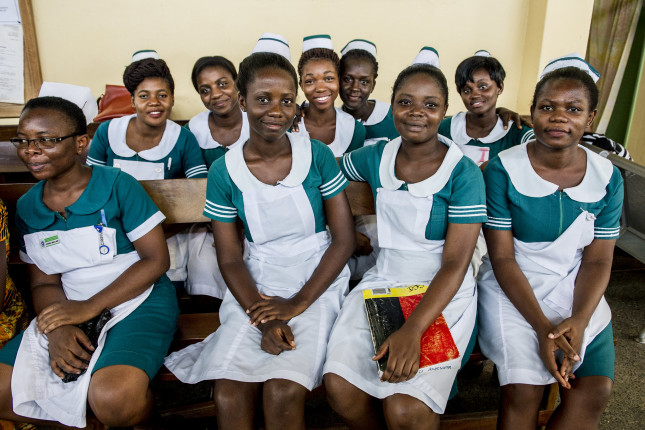
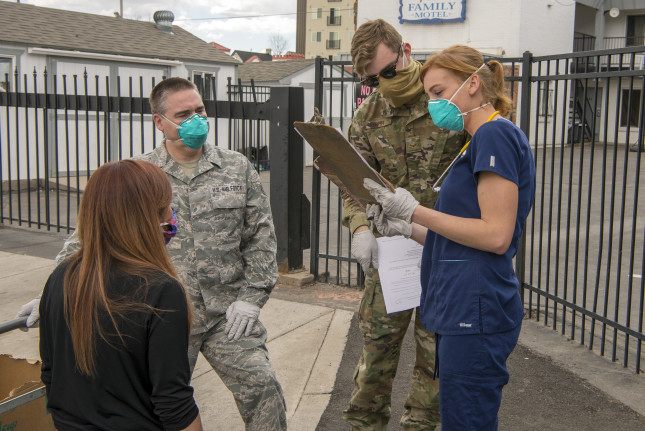
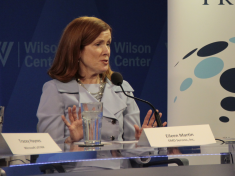 “When you get to the power of voice, you have to be brave and you have to be that person that will speak up and say this isn’t right, but I want to be a part of the solution,” said Eileen Martin, the Global Director of Inclusion at
“When you get to the power of voice, you have to be brave and you have to be that person that will speak up and say this isn’t right, but I want to be a part of the solution,” said Eileen Martin, the Global Director of Inclusion at 
